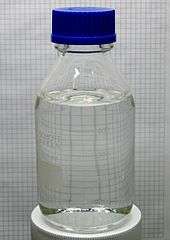Definify.com
Webster 1913 Edition
Vitriolic
Webster 1828 Edition
Vitriolic
VITRIOL'IC
,Adj.
Vitriolic acid, in modern chimistry is denominated sulphuric acid, the base of it being sulphur; sulphur completely saturated with oxygen.
Definition 2026
vitriolic
vitriolic
English

Adjective
vitriolic (comparative more vitriolic, superlative most vitriolic)
- (chemistry, dated) Of or pertaining to vitriol; derived from or resembling vitriol; vitriolous.
- a vitriolic taste
- 1731, Friderick Hoffman [i.e., Friedrich Hoffmann], “Sect. III. The Objections to Mineral Waters Considered: and Rules Laid Down for Rendering such Waters Safe, and Effectual, in the Cure of Diseases”, in Peter Shaw, editor, New Experiments and Observations upon Mineral Waters: Directing Their Farther Use for the Preservation of Health, and the Cure of Diseases, London: Printed for J. Osborn and T[homas] Longman, at the Ship in Pater-noster-Row, OCLC 731570130, page 104:
- No one, who uſes his Senses, can possibly doubt, but there is ſomewhat of a vitriolic Nature found in Mineral Waters: for not only the Taſte, but the Sight confirms it, by their turning inky with Galls, &c.
- 1757, John Rutty, “Book IV. Of the Vitriolic and Chalybeate Waters. The Introduction.”, in A Methodical Synopsis of Mineral Waters, Comprehending the Most Celebrated Medicinal Waters, both Cold and Hot, of Great-Britain, Ireland, France, Germany, and Italy, and Several Other Parts of the World [...], London: Printed for William Johnston, at the Golden Ball in St. Paul's Church-Yard, OCLC 745173148, page 231:
- Nature, far from being confined to the lapis pyrites, has abundant materials, and a great variety of them, in the bowels of the earth, wherewith to impregnate the waters called chalybeate and vitriolic; and thoſe of various degrees of acidity and ſtypticity, even from the mildeſt, where the acid is ſcarcely ſenſible, to the moſt ſharp and cauſtic of the vitriolic ores above enumerated.
- 1777, [Pierre-Joseph Macquer]; [James Keir, transl.], “Vitriol”, in A Dictionary of Chemistry. Containing the Theory and Practice of that Science: Its Application to Natural Philosophy, Natural History, Medicine, and Animal Economy [...], volume III, 2nd edition, London: Printed for T[homas] Cadell, and P[eter] Elmsley, in the Strand, OCLC 858628072:
- [T]he name vitriol ought to be applied to all vitriolic ſalts with metallic baſes. Thus, for inſtance, the ſalt compoſed of vitriolic acid and gold may be called vitriol of gold; and the ſalt formed by the union of this acid with ſilver may be called vitriol of ſilver, or lunar vitriol. Perhaps all vitriolic ſalts might be conveniently comprehended under the general name vitriol.
- 1815 May 25, “An Act for allowing Makers of Oxygenated Muriatic Acid to take Salt Duty-free for making ſuch Acid or Oxymuriate of Lime for bleaching Linen and Cotton; for repealing the Exciſe Duties on Glauber Salt, and on Bleaching Powder imported from Ireland; and to allow for a further Drawback on Foreign Brimſtone uſed in making Oil of Vitriol [55 George III, chapter 66]”, in The Statutes of the United Kingdom of Great Britain and Ireland, 55 George III. 1815, London: Printed by His Majesty's Statute and Law Printers; and sold by J[ames] Butterworth and Son, law booksellers, in Fleet-Street, OCLC 659391425, XI, page 305:
- And be it further enacted, That all and every Maker and Makers of Oxygenated Muriatic Acid or Oxymuriate of Lime respectively ſhall, before he, ſhe or they ſhall begin to mix with Salt any Vitriolic Acid, Manganese or Water, give to the Officer of Exciſe under whoſe Survey he, ſhe or they ſhall then be, Six Hours' previous Notice in Writing, if his, her or their Premiſes in which ſuch Salt ſhall be intended to be mixed with Vitriolic Acid, Manganeſe, or Water, ſhall be ſituate within the Limits of the Chief Office of Exciſe in London, or within the Limits of the City of Edinburgh; […]
- (figuratively) Bitterly scathing, caustic.
- vitriolic criticism
- 2006, Margaret Hannan, “The Cost of Rejecting Jesus’ Message Concerning God’s βασιλεία”, in The Nature and Demands of the Sovereign Rule of God in the Gospel of Matthew (Library of New Testament Studies), London; New York, N.Y.: T&T Clark International, ISBN 978-0-567-04174-6, pages 186–187:
- Another consideration is the known transparency of the Matthaean text. Because of the very structure and tone of the attack on the scribes and Pharisees, one cannot discount the possibility that Matthew is also engaged in serious controversies with the religious leadership of his own day. Therefore, consideration should also be given to the rhetoric of ancient Jewish polemic. This would account for the highly vitriolic nature of the condemnation.
- 2006, Constance R. Sullivan-Blum, “‘The Natural Order of Creation’: Naturalizing Discourses in the Christian Same-Sex Marriage Debate”, in Anthropologica, volume 48, number 2, Waterloo, Ont.: Wilfrid Laurier University Press for the Canadian Anthropological Society, ISSN 0003-5459, OCLC 610393076, page 203:
- Same-sex marriage is at the vortex of a vitriolic debate in mainline Christian denominations in the United States. Both those who advocate for same-sex marriage and those who repudiate it employ naturalizing discourses to legitimize their claims.
- 2007, John M. Shackleford, “A Beautiful Act of Creation”, in Faith Seeking Understanding: Approaching God through Science, Mahwah, N.J.: Paulist Press, ISBN 978-0-8091-4451-8, page 32:
- Throughout his life, Josiah [Clark] Nott corresponded with many interesting and outstanding men of science. He became embroiled with the leaders of Protestant orthodoxy in a vitriolic argument over the unity of mankind. Nott believed that the races were created separately, as opposed to the biblical idea that all humankind came from Adam and Eve.
Synonyms
- (chemistry): vitriolous (obsolete)
Derived terms
Translations
resembling vitriol
|
bitterly scathing — see caustic